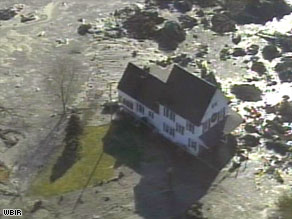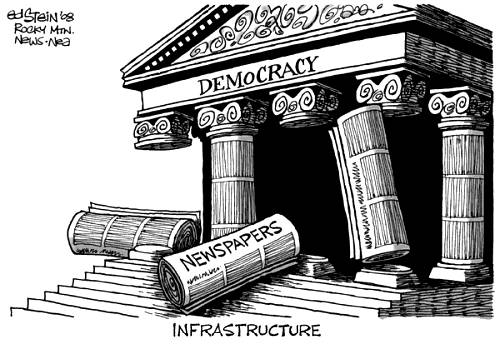10. Marijuana Decriminalization. A 2007 poll conducted by Zogby International indicates that a slight majority of Americans favor the abolishment of criminal penalties for minor marijuana offenses: "Forty-nine percent of respondents, including 57 percent of men, said they would support 'a law in Congress that would eliminate federal penalties for the personal use of marijuana by adults and allow states to adopt their own policies on marijuana." Forty-eight percent of those polled said they oppose such a law; three percent were undecided. The poll has a margin of error of ±3 percentage points." (1) Growing numbers are also in favor of outright legalization with 41% agreeing that "the government should treat marijuana more or less the same way it treats alcohol: it should regulate it, control it, tax it and only make it illegal for children." (2)
9. Universal Health Care. Various polls (1) (2) find that Americans want significant changes to the current medical system, including guaranteed government coverage even if it means paying more: "Americans across party lines are willing to make some sacrifice to insure that every American has access to health insurance. Sixty percent, including 62 percent of independents and 46 percent of Republicans, said they would be willing to pay more in taxes. Half said they would be willing to pay as much as $500 a year more."
8. Stricter Campaign Finance Laws. A large majority (66%) of Americans support an increasing of regulations on how politicians obtain and spend money. (1) Regarding the 2000 election: "Nearly three-fourths of the voters participating in the survey said Texas Gov. George W. Bush's $70 million fund-raising tally is 'excessive and a sign of what's wrong with politics today." Similarly, 40 percent said Bush was the presumptive nominee because of "the amount of money he raised.'" (2)
7. Equal Aid to Palestinians and Israelis. Increasingly dissatisfied with the mid-east peace process, Americans want more results for their high levels of aid money to Israel. "in polling conducted 2002-2003, majorities supported the US withholding or reducing its aid to Israel and the Palestinians, as a means of pressure to influence their behavior". (1) Americans also favor increasing the levels of aid to the Palestinians contingent on acceptance of a negotiated peace proposal: "Asked in a May 2003 PIPA poll "if the Palestinians come to terms with Israel in a peace agreement, do you think the US should equalize the amount of aid it gives to Israel and to the Palestinians," 67% indicated they would support an equalizing aid to Palestine." and "In the same 2003 PIPA poll with a different sample, respondents were told how much aid is currently given to Palestine, and were then asked to provide their own assessment of how much aid should be given if Palestine were to make peace with Israel. The median response was to increase aid to $1 billion, more than 14 times the $70 million provided at the time. The average response indicated a willingness to increase aid to $2.37 billion (somewhat lower than the amount indicated for Israel)." The terms of peace are overwhelmingly accepted by the Palestinian population: "A total of 72.1% of Palestinians support the Taba or Oslo B Agreement between Israel and the Palestinians." (2)
6. Reducing Military Spending. When Americans were asked in a 2005 poll how they would structure the federal budget, the answers could hardly have been more clear: "Defense spending received the deepest cut, being cut on average 31 percent — equivalent to $133.8 billion — with 65 percent of respondents cutting." This does not indicate an unwillingness to support the troops however: "respondents particularly preserved spending for troops, including for salaries (82%), the overall number of military personnel (61%), and development of new equipment for infantry and Marines (64%). Spending relevant to fighting terrorism was also preserved, such as for intelligence (62%), troops for special operations (58%), and advanced communications systems (69%). Also preserved was spending on capabilities for conducting peacekeeping (58%), fighting insurgents or guerrillas (56%), and work on new types of high-technology missiles and bombs (55%)." (1)
5. Increased Social Spending. The same poll showing American's interest in cutting defense spending also pointed to areas where spending would increase if people had control over the economy: "The largest increases were for social spending. Spending on human capital was especially popular including education which was increased $26.8 billion (39%) and job training and employment which was up $19 billion or a remarkable 263%. Medical research was upped on average $15.5 billion (53%). Veterans benefits were raised 40 percent or $12.5 billion and housing went up 31 percent or $9.3 billion. In most cases clear majorities favored increases (education 57%, job training 67%, medical research 57%, veteran's benefits 63%), though only 43 percent of respondents favored increases for housing." (1)
4. Acceptance of the Kyoto Protocol. By a wide majority Americans agree that the United States should participate in the Kyoto protocol: "In June 2005, PIPA simply asked "based on what you know, do you think the U.S. should or should not participate in the Kyoto agreement to reduce global warming." A strong majority of 73% favored participation. This was up a bit from September 2004, when only 65% favored it. Only 16% in June 2005 and September 2004 opposed participation." (1) (2)
3. A Diplomatic Solution with Iran. Only 20% (1) - 40% (2) of Americans support a military strike against Iran to destroy its nuclear facilities. Diplomatic action backed by sanctions is supported by about 60% of Americans: "This ABC News/Washington Post poll finds sanctions the preferred option across the political spectrum".
2. Pulling Troops out of Iraq. Both the American citizenry and armed forces support a timetable for withdrawal from Iraq: "Most Americans support the U.S. House provision setting a timetable that calls for most U.S. troops to be out of Iraq by September 2008." According to the CBS News poll, 59 percent of those surveyed favored the provision while 37 percent opposed it." (1) Perhaps even more telling is the strong opposition to the war from within the army itself: "An overwhelming majority of 72% of American troops serving in Iraq think the U.S. should exit the country within the next year, and more than one in four say the troops should leave immediately, a new Le Moyne College/Zogby International survey shows." (2)
1. The Impeachment of George W. Bush. Majorities of Americans think that George Bush should be impeached for one of two possible crimes: unauthorized wire-tapping of the public and/or misleading the people in to a war with Iraq. On the matter of wire-tapping: "The poll found that 52% agreed with the statement: "If President Bush wiretapped American citizens without the approval of a judge, do you agree or disagree that Congress should consider holding him accountable through impeachment." 43% disagreed, and 6% said they didn't know or declined to answer. The poll has a +/- 2.9% margin of error." (1) On the issue of Iraq: "The poll found that 50% agreed with the statement: "If President Bush did not tell the truth about his reasons for going to war with Iraq, Congress should consider holding him accountable by impeaching him." 44% disagreed, and 6% said they didn't know or declined to answer. The poll has a +/- 3.1% margin of error." (2)
http://www.newsnshit.com/2007/08/top-10-things-americans-want-from-their.html





![[Alberto Gonzales]](http://s.wsj.net/public/resources/images/NA-AV016_GONZO_D_20081230170447.jpg) WASHINGTON -- Alberto Gonzales, who has kept a low profile since resigning as attorney general nearly 16 months ago, said he is writing a book to set the record straight about his controversial tenure as a senior official in the Bush administration.
WASHINGTON -- Alberto Gonzales, who has kept a low profile since resigning as attorney general nearly 16 months ago, said he is writing a book to set the record straight about his controversial tenure as a senior official in the Bush administration. by
by 

 ABHAY ASHTEKAR
ABHAY ASHTEKAR
 Estimates for the amount of thick sludge that gushed from a Tennessee coal plant last week have tripled to more than a billion gallons, as cleanup crews try to remove the goop from homes and railroads and halt its oozing into an adjacent river.
Estimates for the amount of thick sludge that gushed from a Tennessee coal plant last week have tripled to more than a billion gallons, as cleanup crews try to remove the goop from homes and railroads and halt its oozing into an adjacent river.






